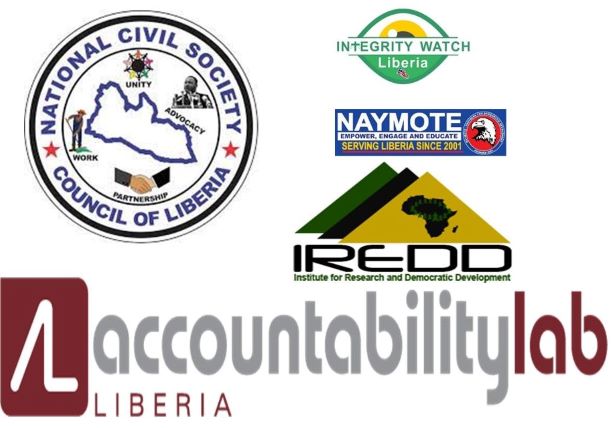A group of Liberia’s leading civil society organizations has criticized the ECOWAS Parliament failing to impact the lives of citizens and holding member state accountable for corrupt and antidemocratic practices.
The civil society groups are Naymote Partners for Democratic Development, Center for Transparency and Accountability in Liberia, Integrity Watch Liberia, Institute for Research and Democratic Development, Accountability Lab Liberia and the National Civil Society Council of Liberia.
Their assertion was made in a joint press statement the civil society groups issued in Monrovia in the wake of the ECOWAS 5th Legislative Parliamentary Seminar and First Extraordinary Session of the ECOWAS Parliament at the Ministerial Complex in Monrovia’s Congo Town suburb.
FULL TEXT OF THE JOINT PRESS STATEMENT BELOW
Joint Press Statement
By Civil Society Organizations on the ECOWAS Parliament Summit in Liberia
We, Naymote Partners for Democratic Development, Center for Transparency and Accountability in Liberia, Integrity Watch Liberia, Institute for Research and Democratic Development, Accountability Lab Liberia and the National Civil Society Council of Liberia welcome the hosting of the Economic Community of West Africa States (ECOWAS) Fifth Legislative Parliamentary Seminar and First Extraordinary Session of the ECOWAS Parliament for the year 2022 in Liberia.
As leaders of civil society organizations in Liberia, we are deeply concerned that 22 years since the inauguration of the First Legislature of the ECOWAS Parliament, the parliament has made little impact in the lives of ECOWAS citizens due to its failure to hold member states accountable for corrupt and anti-democratic practices. While it was meant to be a platform for dialogue for ECOWAS citizens and foster integration, it has been hijacked by politicians who have neglected the core challenges facing the people of the ECOWAS region.
In Liberia, little is known about the work of the Liberian delegation to the Parliament, and Liberians have no means of holding their delegates accountable for what they do at the regional body. The delegation makes no efforts at engaging with the public on their work at the Parliament — laws and policies adopted and their ramifications for member states and if these laws are domesticated in-country. To date the Liberian delegation over the years have failed to ‘inform and sensitize the population on issues of integration’. This is counterproductive to the common interest of the ECOWAS citizens, whose taxes are used to finance and sustain the Parliament through the financial contributions made by the member states.
The increasing wave of political instability and coup d’état in the sub-region, especially in Guinea, Mali and declining trust in democracy due to the failure of governments across the ECOWAS region to meet up to the challenges of unemployment, rising cost of living, insecurity, human rights violations, widespread corruption and poor governance bring into question the role, relevance and impact of the ECOWAS Parliament in advancing democracy and social prosperity in the region.
We believe it is high time the ECOWAS Parliament became proactive and robust in engaging with the economic and political challenges of the region and delivering the much-needed inclusive and sustainable reforms needed to advance democracy, regional integration, and prosperity in the region. This includes, but not limited to genuinely taking practical actions against corruption, rape and other sexual and gender-based offences, supporting member states in eliminating trade barriers, reducing and ending unemployment, human trafficking, insecurity, drugs abuse, money laundering and illicit financial flows, and imposing sanctions against leaders who undermine constitutional democracy and abuse human rights in their countries.
We demand that the ECOWAS Parliament lays out clear mechanisms that make its processes accessible, responsive, and accountable to the citizens of the 15 member states and ensures that proposed laws and policies benefit from broader consultations with the people of the region, before being adopted and domesticated. Finally, we strongly encourage the body to engage more with civil society and create greater visibility for its work, at regional and national levels.

